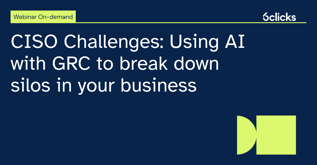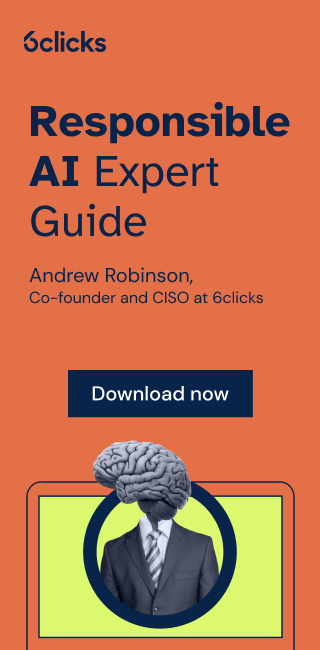According to a Ponemon report, 51% of organisations have experienced a data breach due to the involvement of a third-party entity. Vendor risk assessment is a key step in third-party risk management. Let's see what it is and why it is important in your overall risk strategy.
What is vendor risk assessment?
A vendor risk assessment is a process used by organizations to evaluate the potential third party risks associated with doing business with a particular vendor or third-party supplier. This assessment is typically performed as part of an organization's overall risk management strategy and helps to identify any potential vulnerabilities or weaknesses that could impact the organization's operations, reputation, or bottom line.
The process of conducting a vendor risk assessment typically involves several key steps:
-
Identify the vendors that the organization does business with and the specific products or services they provide. This may include vendors that supply raw materials, equipment, or other goods and services that are essential to the organization's operations.
-
Evaluate the potential risks associated with each vendor. This may include assessing the vendor's financial stability, the quality of their products or services, and their ability to deliver on time and within budget. Other factors to consider may include the vendor's track record with regard to compliance with industry regulations and standards, as well as their overall reputation within the industry.
-
Develop and implement a plan to mitigate any identified risks. This may include implementing additional controls or processes to ensure that the vendor is meeting the organization's standards and requirements, as well as establishing clear communication channels and regular monitoring of the vendor's performance.
-
Regularly review and update the vendor risk assessment to ensure that it remains relevant and effective. This may include conducting periodic assessments of the vendors and their products or services, as well as monitoring any changes in the organization's operations or the industry landscape that could impact the vendor's performance.
Why is vendor risk assessment important?
Conducting a thorough and regular vendor risk assessment is critical for any organization that relies on third-party vendors to support its operations. By identifying and mitigating potential risks, organizations can protect themselves from potential financial losses, legal liabilities, or other negative impacts that could result from working with a vendor that does not meet their standards or expectations.
In addition to the direct benefits of protecting the organization from potential risks, a well-designed vendor risk assessment process can also provide other benefits.
For example, it can help organizations to identify and develop relationships with high-quality vendors that can provide the products and services they need, while also ensuring that they are complying with relevant regulations and industry standards. This can help to improve the organization's overall performance and reputation, and can ultimately lead to increased profitability and growth.
Overall, a vendor risk assessment is an essential part of any organization's risk management strategy and vendor governance. It should be conducted on a regular basis to ensure that the organization is protected from potential risks associated with working with third-party vendors.
By identifying and mitigating potential vulnerabilities, organizations can protect themselves from financial losses, legal liabilities, and other negative impacts, while also improving their overall performance and reputation.
Vendor risk assessment is important for several reasons as summarised below.
- It helps organizations identify potential vulnerabilities or weaknesses associated with their vendors or third-party suppliers. This can include assessing the vendor's financial stability, the quality of their products or services, and their ability to deliver on time and within budget. By identifying potential risks, organizations can take steps to mitigate those risks and protect themselves from potential financial losses, legal liabilities, or other negative impacts.
- Vendor risk assessment can help organizations to develop and maintain relationships with high-quality vendors that can provide the products and services they need, while also ensuring that they are complying with relevant regulations and industry standards. This can improve the organization's overall performance and reputation, and can ultimately lead to increased profitability and growth.
- Vendor risk assessment is an essential part of an organization's overall risk management strategy and supply chain cyber security. By regularly assessing the potential risks associated with their vendors, organizations can ensure that they are prepared to handle any potential challenges or issues that may arise, and can take steps to minimize the impact of those risks on their operations, reputation, or bottom line.
Final thoughts
Overall, vendor risk assessment is an important process that helps organizations identify, evaluate, and mitigate the potential risks associated with doing business with third-party vendors. By conducting regular assessments, organizations can protect themselves from potential vulnerabilities and ensure that they are working with high-quality vendors that can support their operations and help them achieve their goals.
The 6clicks platform helps you automate vendor risk assessments by providing assessment templates, integrating processes, and facilitating collaboration all on a single platform for vendor risk management.
Related useful resources
-
Supply chain cyber security - A guide for CEOs
-
The top 5 vendor risk assessment questionnaires for 2022
-
Third party risk management for cyber risks in 2022
Written by Dr. Heather Buker
Heather has been a technical SME in the cybersecurity field her entire career from developing cybersecurity software to consulting, service delivery, architecting, and product management across most industry verticals. An engineer by trade, Heather specializes in translating business needs and facilitating solutions to complex cyber and GRC use cases with technology. Heather has a Bachelors in Computer Engineering, Masters in Engineering Management, and a Doctorate in Information Technology with a specialization in information assurance and cybersecurity.









